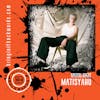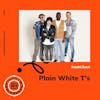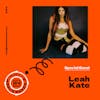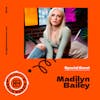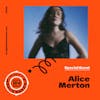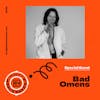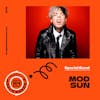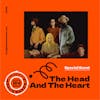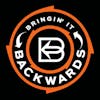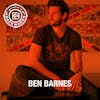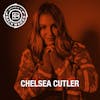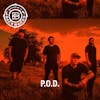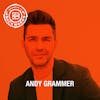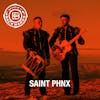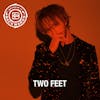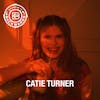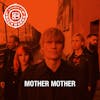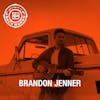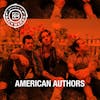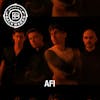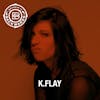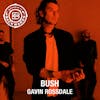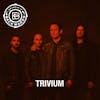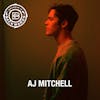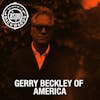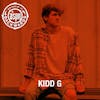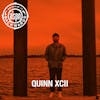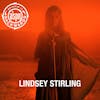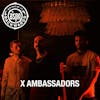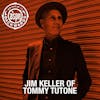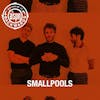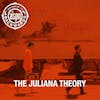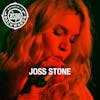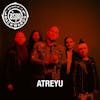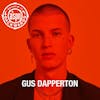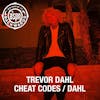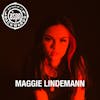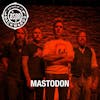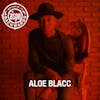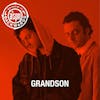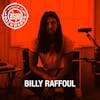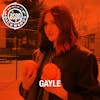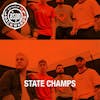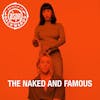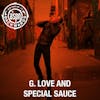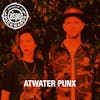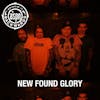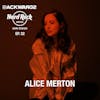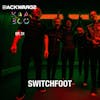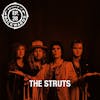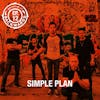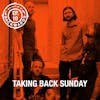Interview with Trench
We had the pleasure of interviewing Trench over Zoom video!
Setting the bar high with their debut record Condition (2017), Trench paved themselves a notably unique lane in both hardcore and nu-metal genres. Not stopping there and taking their sound...
We had the pleasure of interviewing Trench over Zoom video!
Setting the bar high with their debut record Condition (2017), Trench paved themselves a notably unique lane in both hardcore and nu-metal genres. Not stopping there and taking their sound to even further extremes, The Gift of Guilt (2019) was a testament to Trench's ability to reinvent themselves with each release. The 3-song behemoth experimented with synthesis, ambient post-metal soundscapes, and captured the pain of loss while embracing the hardest truths in life.
Throughout these two releases, Trench's unrelenting aggression and extensive touring brought them international recognition, and has allowed them to share the stage with bands such as Misery Signals, Integrity, Harm's Way, and Comeback Kid. Propelled by the leading single “Hell Bent Gate” which features Jesse Zaraska of Misery Signals on guest vocals, Trench landed on Revolver's "Top 5 Bands To Watch" list. Blending their previous styles with far more avant-garde song arrangements, Trench take us to a place where we are left contemplating our inner demons, trapped under the weight of our absence in the present moment.
As the pandemic brought most of the music industry to a screening halt, Trench had to walk away from a tour lined up with Misery Signals as opening support across the east coast of the US and Canada. Not letting a cancelled tour come between them and their will to succeed, Trench quickly adapted to their circumstances and wrote new material, which landed them a deal with New Damage Records (Dine Alone Records), serving as a testament to the undying determination that drives the metal quintet.
Constantly pushing the envelope and developing a catalogue of songs that will forever leave their mark on the industry, there is just no telling how Trench will leave us feeling after consuming their carefully crafted chaos.
We want to hear from you! Please email Tera@BringinitBackwards.com.
www.BringinitBackwards.com
#podcast #interview #bringinbackpod #Trench #EncasedinChrome #NewMusic #zoom
Listen & Subscribe to BiB
https://www.bringinitbackwards.com/follow/
Follow our podcast on Instagram and Twitter!
https://www.facebook.com/groups/bringinbackpod
We'd love to see you join our BiB Facebook Group.
Hello! It is Adam. Welcome back to bringing it backwards. A podcast where both legendary and rising artists tell their own personal stories of how they achieve stardom. On this episode, we had a chance to hang out with Cole young of the band trench over zoom video Cole was born and raised in Calgary, Alberta, Canada, and he talks about how he got into music. His dad, his drummer played in bands his entire life, and Cole would go as a young kid to watch his dad's band play. So he got a drum set at five years old. He talked about learning drums, eventually learned piano and then guitar. He started his first band when he was 14 years old as a guitar player, and they were called act fast and they ended up doing some big things really quickly. 3 (2m 10s): I mean, in ninth, 10th grade, he was going up to Edmonton and playing different shows to Calgary and big venues and opening up for some big bands. When that band fizzled out, he talked about joining a few other bands that were kind of already established while on tour with a different band in the tour bus. He began to learn logic and started writing like rap beats and really dove into production. From this. He ended up meeting people in the hip hop world, wrappers, where he would write beats for these rappers, started a project called suicide Kings. And he did that for a handful of years until he joined the band trench. He talked to us about going to one of the first trench shows. 3 (2m 50s): They only played a couple before he was in the band, but he said it was pretty cool to actually watch the band that he ended up joining before. He was actually a member of the band. We learned about the release of their first couple albums, putting out the record blossom in the midst of a pandemic. Really. They put it on April, 2020 while all their touring plans and everything was canceled. They decided to still put the record out during the pandemic is when they wrote this new EAP called in cased in Chrome. And he tells us all about that as well. You can watch our interview with Cole on her Facebook page and YouTube channel app, bringing it backwards. It'd be amazing if you subscribe to our channel like us on Facebook and follow us on Instagram, Twitter, and Tik TOK at bringing back pod. 3 (3m 34s): And if you're listening to this on Spotify or apple music, Google podcasts, it'd be awesome if you follow us there as well, and hook us up with a five-star review, 4 (3m 44s): We'd appreciate your support. If you follow and subscribe to our podcasts, wherever you listen to podcasts, 3 (3m 49s): We're bringing it backwards with trench. Well, I appreciate you being here. This podcast is about you and your journey in music. And obviously we'll talk about the new EAP that you guys just put out as well. 5 (4m 0s): Cool, man is my audio. Okay, man. I have my like good condenser mic, but it was being a little finicky when I was testing it last night, so I didn't want to risk it. So is that something? 3 (4m 11s): No, that sounds great. Yeah, that's all good. 5 (4m 15s): Okay. Awesome. Yeah, I think we got a couple of faulty XLR cables in my household here that I got to fix. So 3 (4m 22s): All good. It's not, not a problem at all. So first off, talk to me about where were you born and raised? 5 (4m 29s): I was born in Calgary, Alberta raised in Calgary, Alberta. I'm still here. 3 (4m 37s): I was going to ask if he's still there. 5 (4m 39s): I am. Yeah. 3 (4m 40s): Wow, amazing. 5 (4m 42s): I love Calgary. I really do. I think this is a great city. I think it's like maybe somewhat of a hidden gem within Canada. I think when you, when you think Canada, you kind of think Vancouver, Toronto immediately and yeah, Calgary's a, an awesome place. So 3 (5m 3s): How far away is Calgary from Toronto 5 (5m 7s): Hu 40 hour drive? Probably. 3 (5m 10s): Is it really like since 5 (5m 12s): Like across the country? 3 (5m 14s): Well, okay. So where am I thinking of then? 5 (5m 16s): So I'm on the Western side of Canada, so I'm close to 3 (5m 20s): You're. Okay. You're closer to Vancouver then. That's where I was 5 (5m 23s): Thinking. 3 (5m 24s): Okay. I was thinking that you were on the Eastern side. That's why I asked that 5 (5m 30s): Then. 3 (5m 30s): Yeah, I get so confused with geography. I'm terrible at it. Okay. So then you're close to, you're close to Ventura Vancouver then. So how far would it be from there? 5 (5m 41s): We're about like a nine hour drive from men. 3 (5m 44s): It's still by that close. 5 (5m 45s): Not like incredibly close. The cool thing about driving to Vancouver, especially as a band is there's a place to stop in between called Kalona and have an awesome show there, but it's like a beach town kinda like small little city, but it's in the, it's basically surrounded by lakes. And so in the summer, like when we play Vancouver, we'll do a quick pit stop play Colona, hopefully have a day off there to hang at the lake and stuff like that, and then make our way to Vancouver. But, but yeah, like everything in Canada is pretty spread out. 5 (6m 25s): It's not like in the U S or something where we can hit a different city every couple of hours, which would be amazing. But yeah. 3 (6m 32s): Yeah. That's what I've, I've noticed that if you're a band touring Canada, especially if you, if you know you're from Canada and like you mainly would just stay within your country, like it's a nightmare, right? To like, I mean, as far as like getting around, you could drive like a day or 40 hours. That's, you know, that would take you like a week to do 5 (6m 54s): Yeah. At least like a few days of just nonstop driving and you better have multiple drivers because you know, like if you're taking the nights off and stuff, it's going to take you about a week. Probably more, a lot of bands will play Vancouver, come to Calgary, play Edmonton, which is about two and a half hours north of us. And then they'll dip into Montana and start playing the states until they get to the east coast. And then they'll go up to Toronto a lot. That's the smart thing to do is like, if you are going to tackle Canada on a tour, you're doing the U S in between the coasts. 5 (7m 38s): And that just means, you know, you're playing a show every night. You're not driving a week from Calgary to Toronto. So, and that's probably why some bands don't play Canada as well, because as of the logistics of setting up a tour like that and having to cross the border multiple times on one tour, like it can be wild. So 3 (7m 57s): Yeah, I was going to say that that's gotta be insane and especially, well, with the past two years of everything that was happening with all the restrictions and coming in and out of countries like that, that made it even more of a nightmare. I'm sure. 5 (8m 11s): Oh, absolutely. We were supposed to go on a tour right before the pandemic hit. We got approved for our work visas for the states, which is great. You know, that's a, a feat in itself, but it is For even small bands. Like we are, you know, to, to get a visa and do this properly. But immediately after that, all of the borders implemented different rules, new rules, they're still fluctuating and changing all the time. So I think it's getting better now. Like I think now I'm seeing more tours and bands from the states coming up into Canada now. 5 (8m 56s): So I do think there is, you know, if you are up here working, like they're going to let you come work. So, so yeah, let's cross our fingers for, for 20, 22 that all these tours that are scheduled, you know, 3 (9m 10s): Follow 5 (9m 11s): Through and happen. Cause it's so exciting to see on social media and everything like what's going on. I'm like, yes, things are happening, but you know, we can't get our hopes up too, too quickly 3 (9m 24s): For sure. Well, growing up in Calgary was what was that like? I mean, are you on the coast there on the west coast or no, 5 (9m 31s): No. We're not like directly on the coast, but we are, we are like the next major city over from Vancouver, which is on the coast, but yeah, we're, we're kind of landlocked. I'm w I'm actually like from the Rocky mountains, like Calgary is, is at the foothills of the Rocky mountains. So like, we are our bread and butter is like snowboarding skiing, you know, lots of people come to Calgary to go to, there's a place called bam, which is about an hour away from me. And it's just like, kind of like a famous little mountain town that almost looks like it's from a movie or something. 5 (10m 12s): So yeah. We have like lots of little like Rocky mountain lakes and stuff around. So even though we're not on a coast, we're still, we still have like lots of awesome stuff around Calgary. Yeah. So, 3 (10m 26s): Yeah. I'm just, so again, I feel dumb, like not knowing any of this stuff, but I'm like, yeah. So were you outdoors a lot? Like, did you spend a majority of your childhood out, like outside, like snowboarding skiing, all that? 5 (10m 39s): Yeah, man. And I think because Calgary in the, in the winter it can, it can get pretty cold. We were pretty lucky this winter, it didn't didn't really get too cold. We were, you know, it w it was kind of like hoodie, weather, almost all, all winter here in Calgary, which is pretty unbelievable. But yeah, because it would get so cold in the winters normally before global warming really started catching up to us. We basically, in the winter, you sit inside, play guitar, write music and go snowboarding. You know, we're, we're always going to the mountains and stuff. And then, then, then in the summer, you're outside, you know, hiking, doing things in the mountains, really taking advantage of the summer weather because Calgary in the summer gets quite hot. 5 (11m 30s): So we, we, you see it, you know, as soon as the weather starts changing from winter, people are like walking around our city and flip-flops and stuff. 3 (11m 41s): People 5 (11m 41s): Are just like, yes, it's, it's almost here. So, but yeah, I was an outdoorsy kid for sure. I still try, man. Like, I, we definitely take the mountains for granted asked pretty anyone that grew up here. They'll tell you, they take the, the setting for granted because a lot of my, my friends that are not from Calgary, but live here. They're like, man, like they're there in the mountains, you know, every weekend. Right? Yeah. But as I've grown up and gotten older, I'm, I'm realizing what, what I have here and the beauty of the land here and stuff. And you know, you really got to take advantage. It's inspiring. 5 (12m 21s): Even when it comes to songwriting, like a day in the mountains, man, hiking, you come back and you're like, whoa, I feel good. Like, I got a rush of energy. I'm feeling creative. Like, let's go. So 3 (12m 36s): That's amazing. And how did you get into music, your musical household at all or no? 5 (12m 40s): Yeah, my dad's a drummer. 3 (12m 42s): Oh, amazing. Professionally or just 5 (12m 46s): For, he was for a long time. And he also owns a business, like a woodworking business too. So he, he kinda was doing both usually through his whole life and he still plays the drums and still has like a jam band and they'll play it. There's this spot called the blues can in our city. And like, they'll go play there and stuff all the time. Like he's living his best dad, old man life. Your dad love ya. But yeah. So I grew up in a indefinitely, a musical household. You know, my mom, I was listening to Whitney Houston through my mom and Janet Jackson and Michael Jackson and lots of like really amazing music growing up. 5 (13m 36s): And then through my dad, I was listening to, you know, black Sabbath, pink Floyd, even like Metallica and stuff through my dad. So I had a drum set of by the time I was five years old. So I truly started on, on drums, which is funny because in every band I've ever really been in, I've played guitar. But yeah, I started on drums and probably picked up the guitar around like 11, 12. And that's when I started getting more into like plugging into an amp and like electric guitar kind of blew my mind after so many years of playing drums. I was like, man, I could turn this down and like put it in my headphones and you know, it could be midnight and I can be in my room just writing stuff or playing along to my favorite bands or whatever. 5 (14m 24s): So yeah, I really started getting attached to the guitar, but every now and then I'll still play Tommy trenches, drummer. I'll still play his kit just for fun, you know, make sure I still have my rhythm and everything a little bit. Anyway. 3 (14m 39s): That's cool. That's amazing that you weren't a tremor for other bands because tremors are so hard to find like a diamond doesn't right. I mean, like, you know, it's like at least where I was. I mean, growing up when I tried to play in bands, you know, played guitar terribly well, if you ever wanted to jam, it was like the, the, the drummer I always had like the pick of the litter, it was like, who did they want to play with? You knew it was like, you know, like if you're a drummer, you could choose anyone. And then if you're a guitar player, you just hope the drummer wanted to play with you. 5 (15m 11s): It's so true. You, you nailed that. And it's funny because if you're like a good drummer, you can go far, you know, like you can go far, if you're a good drummer and have them ambition and motivation, like, like you said, there's, there's way less drummers than there are guitarists. So, but yeah, I don't know what it was with me wanting to gravitate towards the guitar. I think when I was like 14 ish, I started my first band and it was all because my, one of my best buddies who was a drummer, he was like, man, why don't you play in like a, a metal band or a hardcore band on guitar? 5 (15m 53s): Cause I was just like riffing around while he was at my house. He's like I'll drum. So I think it was like literally that moment that I was kind of gravitating towards guitar because I found a drummer And wanted to play and like write music and stuff. So I was like, awesome, dude, I'll play guitar. And I guess the rest is history, you know, I'm, it surprises me too that I took guitar as far as I have, when starting as a drummer, I really feel a lot of drummers. You know, they've been they're tenured. And once you start playing drums, you oftentimes stick with that instrument as, as your main gig. So yeah, a little backwards for me, but I think it worked out for the best, you know, I look at drummers now, even Tom from trench and I'm just like, man, I can't do that shit. 5 (16m 42s): Like there's no way. So yeah. So really like I'm, I'm better off where I am on guitar for sure. 3 (16m 50s): For sure. My son is about to turn six next month, but he, we gave him a drum. We got him a drum kit when COVID started, but we got him on the electric kick. So the neighbors didn't want to like, you know, kill us. But yeah, I'm a buddy of, mine's a drummer for a bunch of different artists. So I called him. I'm like, dude, like what? He's five, what do I get? And he's like sends me this kid. I'm like, this is a little advanced. He's like, no, teach him how to play. Like with a real kick drum and everything, because it'll make a difference and he's taking lessons now and he likes it. But I feel like he's more interested in the piano, which I think is 5 (17m 27s): Okay, but 3 (17m 29s): I want him, I want him to stay on the drums. Like I'm like, yeah, like I'll definitely gave piano lessons, but you're going to say drama 5 (17m 36s): Because 3 (17m 37s): If he ever wants to be in a band, then he won't have to go find the drummer. Hopefully. 5 (17m 42s): Exactly. That's, that's awesome. Like for sure, like I'm I'm of the mindset, you know, kids should be musical if they're, if they like it and you can tell they have an interest in it. Like that's awesome. Piano lessons, drums, like the whole nine. I remember when I was a kid, my mom put me in piano lessons. Like I didn't have a choice. And that helped immensely with just learning how to read music and, you know, scales and just the fundamentals of music. Piano was an absolute lifesaver for that. And you kind of set the tone for, you know, how I go about writing. 5 (18m 24s): And I, I'm definitely a big player by ear as opposed to someone who like goes out and looks at tabs or tries to read music. And I think piano was the reason that I functioned that way. For sure. 3 (18m 38s): That's amazing. That's interesting. And so you're playing piano and drums the same time for awhile 5 (18m 43s): And guitar 3 (18m 46s): Together. 5 (18m 46s): I think I took piano lessons for like at least probably four ish years, you know, enough to like to grasp piano a little bit. I think I've lost it a little bit though, because I actually sat on a piano the other day at national music center here in Calgary. I was, I was on like a tour there, like there was a tour guide taking us around the museum was like, you could play this piano if you want. And I sat down and I was like, whoa, man, I have no idea how to do this anymore. I think I kinda lost it. I might have to watch some YouTube and brush myself back up on the piano. 3 (19m 26s): I'm sure you can figure it out again. 5 (19m 27s): Yeah. Right. 3 (19m 29s): Well that's cool. Well, I just don't have a quick question on your dad because you said he was a drummer. And did you ever go see him play at all or was he done playing in bands at that point? 5 (19m 39s): Yeah, totally. I used to go see him play. Usually it was at venues that I was too young to be at. Right. Like he was playing at bars or bars or something like that, but yeah, my mom would sneak me in and stuff and just throw the big headphones on me. So I wasn't damaging my ears and I would go see my dad play. And I used to love watching his band practice at their practice space. I would literally just sit there with my own drum sticks on like a drum pad and just kind of them along to what they were playing. But if it wasn't for my dad, there's no, absolutely no way I'd be in music right now. 5 (20m 22s): That was super pivotal. And you know, him being such a music guy, of course, that rubs off on me. Kind of like with your son, you know, if he's already, if he 3 (20m 32s): Sees interested. Yeah. 5 (20m 33s): He's drumming. That's that was exactly kind of the age range where I started at. So it'll most likely be with him forever in some capacity. And I know for me, it was because of my dad. So 3 (20m 48s): That's amazing because that's something like I want for him, you know? And, but I'm like, am I going to be that parent? This is like throwing stuff at him. And then he's like, I don't want to do this. I was like, you're going to do it, resent me and not in hate music because I'm throwing it at him, but he's 5 (21m 5s): Seemingly not cool. Right. So 3 (21m 7s): It's like, 5 (21m 8s): Most kids are like, oh man, like who doesn't love making a bunch of noise. I'm like, especially with drums, just getting the, you know, just drum skins, like that's so satisfying for a kids. So yeah. 3 (21m 21s): You've got to come over and smack. Yeah, definitely. I definitely like he, his friends will come over and just like want to just hit the drums all day. Like smash, it actually run it through that same orange Anthony you have behind you. I have an older son and he plays guitar. He's learning guitar. So we bought him that amp and because the kids electric and when the teacher comes over, we plug it into that orange amp. And it sounds pretty good, like coming up through there, but I need to get him a new speaker, I think, but cool ends up. It ends up sounding pretty good. Just even come through the guitar amp 5 (21m 51s): And with the electric drums. I mean, you could patch any sound onto there too. So even more options and fun, you know, I have a little electric drum kit in the basement of my house. 3 (22m 3s): Cool. 5 (22m 4s): Yeah. My dad gave it to me like maybe two or three months ago. 3 (22m 8s): Amazing. 5 (22m 9s): They're so fun. They're so sick. Like I, you know, I like it. The volume knob is, is really awesome. Like they'll go down there at 10 30 and like jam out a whole record if you want. And no one even knows you're doing it. 3 (22m 25s): Yeah. I mean, it's not very loud at all and when you're hitting them and it's the loudest thing for us is we, he, we have a two story. And so the drum kits on the top floor. So like when he's hitting the kick, it's like, dude, You can hear it downstairs, but I don't care. Like play it as loud as long as you want as loud as you want. I don't care as long as you're playing it. But yeah, that's awesome that you started on Alfond drums. And so you said you started playing in a band. What if, when your friend that was a drummer said that let's, let's start something. And then how long were you in that band for? Was it just something that you guys screwed around with and like what was the first kind of, you know, step in the, I want to do music full-time direction. 5 (23m 6s): Yeah, I was, I was about 14 and we started a band called act fast, kind of like a hardcore band, like a cool name. Yeah. Kind of punky, hardcore band. There's a band. So I, yeah, I started going to shows when I was really young, like probably a year before that, or maybe two years before that just going to local shows, you know, there was lots of all ages shows here and you know, a lot of friends in my junior high were already into music and, and, and going to the local shows and the local scene before I was, so I kind of got introduced to that through, through like grade seven junior high school type thing. 5 (23m 49s): So once we started, once I started listening to that stuff, that heavier music and hardcore punk rock, I was like, man, yeah. Like my buddies, right. We should start a band. Like I'd love to write stuff like this. And just, you know, was always creative. Always wanted to, to play shows and to make music and make records at the time, make CDs and burn my own music to my own CDs and stuff. Like I was all about all of that. So act fast, actually got like somewhat popular within Canada. We were lucky, man. We, we got to play some amazing shows. We got to open for some awesome bands at that time. 5 (24m 33s): Like just being such a young kid, being exposed to like the industry and playing like some of the bigger venues in the city and stuff was really, really wild. Like I remember my, my English teacher once I got to like grade nine, 10, I remember my English teacher, like letting me leave early because I would have to like drive to Edmonton or Vancouver to like play with act fast. You know? So being asked, 3 (24m 59s): So you guys are doing stuff in that young, I mean early on in high school. Yeah. Wow. 5 (25m 6s): For sure. Like for being that young, I thought I had, like, I was like, whoa, this is insane. Like, wow, this is so cool. And even just playing like Edmonton was just a trip for us, you know? Sure. Luckily one of the guys in my band, like he was just old enough to have his license. So we were able to like drive to the shows and, and make this happen for ourselves. I can't tell you how many venues, like we couldn't tell. We were like under 18 to, 3 (25m 37s): You know, 5 (25m 38s): Kind of had to like play the show and just like leave and hang outside after just cause we were not all of us have were like of age and stuff 3 (25m 45s): Yet. 5 (25m 46s): So yeah, that was my first band 3 (25m 49s): Or some of the, you said you got to play with some big acts. Like, is there so many off the top of your head you can remember playing with and being like, oh my gosh, I can't believe we're opening up for so-and-so 5 (26m 1s): Totally. There was a band that I was super influenced by writing act fast and they were called ceremony. Have you ever heard of that fan ceremony? 3 (26m 10s): The names are familiar. 5 (26m 12s): They're still around. They've changed themselves sonically quite a bit since then, but they used to just be like a really heavy kind of thrashy, hardcore band. They were really like, like spearheading a genre within heavy music. I think that that not a lot of bands were messing with at the time, super heavy. Now they're kind of like almost like an indie rock fan. Like they've changed their sounds so much. It's still amazing. Check them out after this podcast. But ceremony, that was a band that I was super influenced by my band act fast, used to like cover one of their songs and stuff at our, at our gigs. 5 (26m 58s): And I remember we got to open for them. So, you know, we were kinda almost like star struck, even though we were playing like a community center opening for, for this band that we all love to listen to. It was, it was like a dream come true at the time. That's 3 (27m 14s): Cool. 5 (27m 15s): And I still remember that show vividly and yeah, I still, I still listen to that band too. I don't know if there's as much of an influence for my writing as, as they used to be, but I still really just that show resonates with me and that band, I think because of that, I have such a soft spot for that band. 3 (27m 37s): That's incredible. They're from California. I just looked them up. 5 (27m 39s): Yeah. They're from California. They're awesome. They, I don't know like how often they still play, but I ended up seeing them many times after that I traveled to LA for a Fest called sound and fury back in the day. Have you heard of that fast? 3 (27m 55s): Yeah, I have I'm from San Diego, so I know. 5 (27m 59s): Okay. So and saw ceremony there and it was just epic, man. They, they headline that festival and it was just like absolutely epic. And that was probably five years after the show we played with them. So wow. Yeah. Fantastic band. And so that's a standout show for me for being such a young kid, getting up, being able to do that. 3 (28m 20s): Yeah. I'm going to check them out after this, there from the, like around the bay area, San Francisco 5 (28m 24s): Area. Yeah. 3 (28m 25s): That's awesome. So that, I mean with act fast, how long did that band stay around for? And like, you know what, like, as it fills this out, like tell me what, what what's next for you. 5 (28m 37s): So through playing an act fast, I met, 6 (28m 42s): You can't get much for five bucks these days, unless you go to Wendy's for a $5 biggie bag, get your choice of double stack junior bacon cheeseburger or crispy chicken BLT, plus four piece nuggets, fries, and a drink all for just five bucks. That was smooth. Wasn't it? That's how you're going to feel when you get that biggie bag at Wendy's 8 (29m 6s): The was price and participation may vary, includes four piece nuggets, small soft drink, and small fry prices may be higher in Alaska and Hawaii. 5 (29m 12s): A few guys from the city over, like I was telling you before Colona, Colona, British Columbia and AF fast and narrowband born for battle, we would play together. We ended up just, I ended up starting a band with those guys and, and we were called horizons. And we like, I w I was, I think I was 18 at the time, roughly I had probably just graduated high school. And the first thing we did was book ourselves like a two month us Canada tour horizons. So we actually, we, we became busy enough and we were, we were touring enough. 5 (29m 55s): That act fast was just not something I could realistically put my time into anymore. So it wasn't happening fast enough. Yeah, it wasn't. Yeah. I see what you did there, But yeah. And, and it kind of slowly fizzled out and some of the members moved away to Vancouver or surrounding cities and stuff. So it kind of just like naturally fizzled out act fast, ended up playing a last show at a really awesome venue here. We were like right. Downtown Calgary. And it was an amazing show. I think there was like six or 700 people there. 5 (30m 37s): It was an awesome, like sendoff for act fast, but my, my eyes were on my, my new band horizons. We were getting some cool opportunities and we were playing some awesome shows around the states and, you know, being a Canadian boy and being able to play New York city or LA or something like that was, was really fun. And I was, I was at the age where I could actually kind of, you know, not really worry about anything else in my life as, as bad as that sounds and just kind of worry about touring and like, you know, working in between tours to go on tour. Cause you're obviously not making money on those tours by any means, but, you know, just for the opportunity to be able to do that. 5 (31m 21s): And it's funny because through horizons, we started playing shows with a band called grave maker. They're from Vancouver, see a couple of guys from Seattle as well. And yeah, they, they, I saw them at a show in Calgary and one of their guys came up to me and they were like, man, we're looking for a new guitar player. You know, like let us know, did they were, they were already well-established and already touring. They were touring south America and Europe doing things that I could only have imagined to do at that time. So, so yeah, I ended up doing that with grave maker. 5 (32m 7s): It didn't last too long. I think I was in the band for maybe like a year and a half or so. And yeah, that was an awesome opportunity for me. Those guys taught me so much about touring and about just writing music and releasing music and, you know, talking to labels and just all the kind of behind the scenes stuff that you don't really get to see. So, so yeah, that was a really great opportunity for me and being able to play with of the bands I played with with brave maker and stuff was, was very inspiring. You know, definitely changed my life. 5 (32m 48s): I could, I could probably, I could probably say that was the turning point for me to where I knew I wanted music to be like a full-time thing for me was when I was with grave maker. So yeah. I went act fast Horizon's grave maker, and then, then I kind of ventured out to other things as well, so. 3 (33m 9s): Okay. Well with gray maker, did that, did the band end up stopping or, or was that hard to like, you know, making that decision, like, okay, now this is what I really want to do. I'm really going to pursue doing music. And you said the, the band you played with the band for about a year and a half. And then after that, like how do you, like, what where'd you go from there and like, did the band stop or like where did, where did that leave with you? 5 (33m 33s): Yeah, so they were, so grave maker was, was awesome because I was also like doing production at the time and getting kind of dipping my toes into doing music production. So I'm making beats and doing engineering and just general music nerdism in logic and pro tools. And I got really into like samplers and drum synthesizers and stuff like that. So I was actively like in the grave maker van when we were on tour, like doing production on my laptop in the back seat, like for different artists and different rappers and stuff like that. 5 (34m 16s): I think it was a combination of things that, that made me leave grave maker. One was the touring schedule. I D I think I was too young at the time. I think that I was overwhelmed by how much we were on tour to put it bluntly, you know, like I just don't, 3 (34m 36s): That was probably overwhelming. 5 (34m 37s): Right? Yeah. It was crazy. I'm like to sustain myself in between tours and like, you know, I had a pretty solid job here, but it got pretty tricky sometimes. And then, you know, it w so that was, that was one aspect of it that I just don't think I was ready yet. Like, like I have been for the last couple of years, once I really matured and understood it, understood how touring works and stuff. And I think it was a combination of me really wanting to pursue production stuff as well. I really had a great time doing making beats for rappers and stuff like that. And I was getting really into it and getting like somewhat busy. 5 (35m 21s): So I met a guy, I met a rapper from Detroit when I was on tour with grave maker and terror actually, and we, we kinda hit it off and we started a little project called suicide Kings. I made the beats and he rapped. And I think that was the real catalyst for me. Leaving grave maker was starting to take suicide king seriously. I was noticing the trajectory of our music and, you know, we were getting cool show offers and stuff like that. And I, I think hip hop was really where I wanted to lay my feet. As you can tell, I've expanded since then, I still do suicide bangs and make lots of hip hop music. 5 (36m 6s): You know, I would say I Moonlight as trench, guitarist and songwriter, you know, but, but a lot of my time goes into making production for artists. 3 (36m 16s): That's cool. 5 (36m 17s): Yeah. So, and then suicide Kings, I mean, long story short, man, we released a bunch of vinyl on a couple of different labels in Paris and in the states, and we toured Europe three times. I made some, some lifelong connections and kind of crafted myself a little bit of a career out of, out of being able to do the production side of things. 3 (36m 46s): Yeah. That's incredible to like go from, you know, being in these kind of heavier thrash bands. And then you're like, I'm going to start making like beats, like hip hop beats, and then have it become something, you know what I mean? Like that's quite, that's quite incredible. And was that something that was hard to, I mean, when you leave the band, then it's like, you're getting all these opportunities with, with suicide Kings. And then when do you come back around and is trench like the next band that you form? 5 (37m 15s): Yeah. And the trench was years later. Oh, it 3 (37m 18s): Was years later. Okay. 5 (37m 19s): Yeah. So, so I was PR I was quite busy with suicide Kings for, I would say like a good five years or so. 3 (37m 28s): So that became like the full-time thing 5 (37m 30s): That became my full-time thing. Yeah, for sure. Like that was, that really truly was like my, my, my full attention almost because we were just busy, you know, and the MC from suicide Kings, he was actually living in Calgary at the time and he ended up moving back to Detroit and obviously like it, it can become harder to, to write music as often, and as efficiently as we were before in the same room together now, we're like he's in a different country. So, so yeah, I was still busy with suicide Kings, but I was, I was looking to sink my teeth into something else as well. 5 (38m 15s): Like something tangible that I can do in the city. I really love writing with people. You know, I love writing with people in the same room, I think, because it was about probably five, six, maybe even more years displaced from the grave maker times I was ready to play heavy music. Again, I had never put my guitar down or anything, but I was ready to, you know, still fulfill my role as a producer and work with suicide gangs and work with different artists and make beats. But I wanted to dive into some more heavy music writing as well. And that was when kind of trench came along. 5 (38m 56s): And yeah, it came along at the perfect time, man, because I realized I kinda, I have really bad anxiety and writing music or playing instruments is one of the only things that truly kinda Zenz me out. So to be able to write heavy aggressive music or write like a soulful rap song, I was able to fulfill any of the emotions I was feeling and, and able to do that through many different genres, which is very like satisfying as a, as a musician. So yeah, that's kind of the story of like it, now that I'm talking about it, it's like, wow. 5 (39m 40s): It went from this band to this felt like there was a lot of moving parts to get to where I am now. 3 (39m 46s): Yeah. That's fantastic. And with trench, do you find the guys in the band? Like, are they people you knew prior? Like how does the, how does the band begin then? 5 (39m 54s): Yeah. So with trench, these are all guys I grew up with in Calgary ascend. Yeah. We all met like through, going to shows a decade plus ago, probably like there's photos of act fast, last show. And like the trench guys are like in the crowd shots, marching and stuff from when we're like super young. So yeah. We've known each other for a long time. So trench actually, they formed, it was originally just Jay and Brett and then they included, they got the Chan's involved. 5 (40m 36s): So Tony and Tommy Chan the rhythm section of 3 (40m 40s): Drum and bass. Right, 5 (40m 41s): Exactly. Yeah. 3 (40m 42s): They must be super tight if they're brothers. I would imagine 5 (40m 45s): They're twins, 3 (40m 46s): Twins. There you go. Like, yeah, there's 5 (40m 49s): A have that twin connection, 3 (40m 51s): This session with drums and bass together. Like that's gotta be unreal, 5 (40m 56s): Dude. It's, it's like so awesome to experience them having that twin rhythm section connection, because like I was listening to a podcast that Tommy did the other day and he was like, man, when me and Tony mess up, like we mess up at the same time and we recover at the same time. Like they're totally on that wavelength, you know, it's 3 (41m 17s): So funny. 5 (41m 19s): It's pretty awesome. But yeah. So Bryce, Jay, Tony, and Tommy, they actually wrote trench songs before I was even in the band. They were originally just going to be a band with one single guitar player. They had maybe played like a show prior. And then I went to see them at this really interesting kind of warehouse venue in Calgary. It was maybe like their second or third show. I don't quite remember. And I was pretty intrigued by the music, you know, there's like 20 people there, like super small show, but it was, the vibe was just like unbelievable, you know, and I was really stoked on, on trench and we were all homeys anyway. 5 (42m 6s): And yeah, we kind of just got to talking and it w I don't remember if they said it or if I said it, but like, I think like a few days later I was entrenched as their second guitar player. And I was like, all right, boys, like, let's get to it, teach me the songs you've written. Let's write more shit. Like let's dig into this. And I think with my knowledge of the industry, I could help kind of, I don't know, take trench to where they wanted to be. Maybe like in a, in a like releasing music type of standpoint, like, are we going to press tapes? 5 (42m 46s): Are we going to have shirts like that kind of stuff? You know? So I think that, yeah, the power is combined man, like with all of us combined just kind of made trench what it was. And, but yeah, it's interesting. I, I, I definitely joined the band after they had played their first show, which was sweet for me because I got to actually watch, because I've now, you know, I've been entrenched for X amount of years, five or six years. And it was kind of cool to be able to watch one of their first shows as a spectator. 3 (43m 22s): Right, right. 5 (43m 23s): It's weird. Weird to think about, you know, 3 (43m 26s): And w did they have any music out yet or is it just, they just played, they had songs and they just played the, a couple of shows. And that was, 5 (43m 33s): I think they had like a little demo out like a two or three song demo, you know, didn't get fancy with the recordings or anything like that. And that was what they had out at the time of me seeing them. So what I loved about trench too, and again, this was like five, six years ago was they had already put something on band camp and they had only played a show or two, you know, I find that a lot of bands wait until they play 20 shows. And then they're like, okay, here's our music that you can listen to digitally. You know? And I love that trench was really about crafting the product, which is what I'm super into. 5 (44m 18s): Like, we're totally a studio band. You know, we love writing music and like, and being in the studio and recording and crafting like an LP or an EAP, like, that's, we love doing that. But there, the next release condition was the one that I was like, all right, boys, like, we need to like press tapes or something. You know, we need to kinda take this to the next level. And then for our, our first like true EDP, the gift of guilt was when I think we were like, okay, we're going to go to like a really legit engineer and producer and like, let's try and make this sound sonically awesome. 5 (44m 59s): If we're going to take this band seriously. So, and we've been going to that guy ever since. And I think the gift of guilt was like a turning point for the sound of trench. I think that was when a lot of people listened to us and kind of were like, okay, like this production's awesome. Like I'm not going to sleep on this, you know, so, yeah. 3 (45m 20s): And you, cause you put that record out in 21, 19 EAP, and then you did a record blossom. That was what, two or two years ago, I guess now. Yeah. It's weird to think that that was two years ago. So 5 (45m 33s): Super weird. Did that 3 (45m 34s): Record come out during pandemic or before it started 5 (45m 38s): During, it was a tough decision. What we were going to do with the release of that record 3 (45m 43s): Was 5 (45m 45s): April 20, 20. So like a month after the pandemic started. Yeah, it was done beforehand. So we, we were basically what, what our 2020 was looking like is we were supposed to, we recorded blossom in 2019. We were set to release blossom in April of 2020. And we were supposed to go on tour with misery signals in the U S and Canada in July. So we were basically gonna release the record, play a couple like spot dates. And then we were leaving for like a month long misery signals tour. 5 (46m 26s): And the only thing that happened out of all of that is that we released blossom, which is cool. Like it, it definitely did great things for us and, you know, we debated, we were like, should we hold off? Ha what is, how long is this gonna be? Is this gonna be a week? Is this going to be years? And here we are two years later, but you know, that was something we were just like, you know, let's just do it. Let's just release this record. And, you know, if it falls by the wayside or something, we're not breaking up, we have more records in us. Like let's just release it and see what happens. And I'm so glad we did, you know, I believe it carried trench. 5 (47m 8s): It helped us get through the pandemic and still be a band that, that can release something today that people may care about. You know, we didn't get lost in the pandemic shuffle or breakup, like a lot of bands did, which I understand why bands were doing that. We were just lucky because we all live in the same city, you know, through the pandemic could get together and write and still go to the studio and, and be creative. It was, it was a pretty amazing thing in such like a dire situation that we could still be a band together. 3 (47m 43s): And were those songs that you were able to work on and write throughout the pandemic? Is that what became in case in Chrome or are these, are these even newer songs in that? 5 (47m 51s): Yup. We wrote in case thing Chrome through the pandemic, we kind of like, yeah, we were in, in our city, the COVID numbers were up and down and up and down. So we were constantly like shutting down and reopening and shutting down and reopening. So the, the records started with us just sending like stems to each other through email, basically, and kind of building off of that. Our, our drummer, Tommy and Tony, his brother, they're both like great engineers. And Tom has an awesome little studio set up in his basement. 5 (48m 32s): So we were able to, you know, once we were feeling comfortable about getting in the same room and all that, we were able to take all these ideas. We had already kind of hashed out through sending stems to each other, and we just started recording pre-production in Tom's basement in his home studio. So that was like, I think we will never not do pre production ever again because we, we were able to take like months of recording, changing this, changing that, changing the structure, rerecording it, and not having to pay for all this studio time of us, like basically crafting a record in a studio, but it's kind of, it's Tom's studio and he's in the band. 5 (49m 18s): So he's, he's like, let's do it here, you know, write our ideas and let's start building these songs and writing these songs. So actually in case thing, her home was super fun to write. I really want to continue writing trends, stuff like that. It's awesome to be able to listen to a song knowing you're not putting it out for like eight to 10 months, so, oh, you don't like that riff there let's go back and rework that and change. 3 (49m 46s): It can 5 (49m 47s): Change. We have the time to do that, you know? So I think that was like a, a nice secret weapon for us to be able to get as wild as we did on, in case thing from, and that's kind of how we're starting to write our LP right now, as well as like we got stems floating around right now, like mostly guitar riffs. And I think once, once we hash a few of 'em out, we'll start going to the pre-pro process already just cause that's become a part of our writing process. 3 (50m 17s): That's amazing. And with w with that record or with the new one in case in Kroger, you guys signed with dine alone. 5 (50m 23s): Yeah. 3 (50m 24s): What was that like? I mean, there are great, 5 (50m 30s): It was really surreal, man. So yeah, like through the pandemic, it allowed us to focus a little bit more on like the business side of trench. And what does this look like? Do we want to do, to keep doing this in the DIY realm, which honestly, none of us have a problem with doing that. We all grew up doing it through our hardcore bands and just basically doing everything ourselves. Now, the only difference is like we're a little older, we all have jobs. So like we can afford to do a merge run or we can afford to, you know, book the studio time or something, but signing to dine alone slash new damage was new damages, basically dine alone records like alternative kind of heavy label subsidiary. 5 (51m 23s): Right. And signing to dine alone was just, it couldn't have happened at a better time. First of all, we couldn't believe we got a record deal through COVID. 3 (51m 35s): That's incredible. 5 (51m 36s): Yeah. I, it was, it was really odd in a time of kind of despair for the music industry. I was under the impression like labels just weren't signing or anything, you know, because it was so uncertain with live shows and just being able to properly do the business that a label would do. So the fact that, that we did get signed through a pandemic was unbelievable since like signing with them. They've really, you know, being able to kind of utilize the dine alone records, resources, and, and, you know, they, they, they see our vision. 5 (52m 16s): They've never like asked anything of us creatively. They're just like, do trench, be trench, do what you would do. You know, we have like a rapper on one of our songs and they were just like super stoked on it. You know, they were very encouraging and they're like, yeah, let's get crazy. Like just be trench, man. We're just here to support you guys and, and, and guide you. And they're, they're an amazing label. And it's, it's great too. Cause they're Canadian, I've noticed that sometimes it can be a little tougher for an American label to sign a Canadian band. You're immediately dealing with a band that you're going to have to like constantly get visas for, to cross the border, dealing with the different currency. 5 (53m 4s): You know, just all those little intricacies that come with signing a band from a different country. And we had been talking to a couple of different labels and yeah, dine alone really was just like the natural choice. It's been a w what a trip it is to be on a label with like Alexis on fire and stuff. Call them our label mates is just, you know, unbelievable. I can't, I can't get over it. I don't think any of us can. So yeah, we, we feel very, very honored to be a part of the dine alone, new damage team. 3 (53m 39s): So. Cool. So cool. And thank you so much for doing this, man. I really appreciate your time. 5 (53m 44s): You would, of course. Thank you for your time. It was great talking to you, man. 3 (53m 48s): Yeah, I have one more quick question. I want to know if you have any advice for aspiring artists, 5 (53m 57s): Just do what feels right. I think that's my advice. You know, if, if you want to be like a guitar player that just sits at your house and learns blues, and that's where you want your, your, your musical journey to start and end, then do that. If you want to be the next like Bieber, then I think you should push for that and do that because it is all possible, you know, and that sounds kind of cliche. But as a guy who's kind of on a small, you know, seeing different things happen to my own band, I'm realizing, wow, like you really just have to commit and you really just have to like chase after exactly what you want and make a plan for your, for yourself, for your music. 5 (54m 49s): You know, whether that's learning an instrument or pressing your band onto a cassette tape or touring the world, make a plan, make a goal and a follow through, you know, do everything you can to follow through. And that will put you in a integrate space regardless of if you get massive. Or if you're just having a good time like noodling around on a guitar.
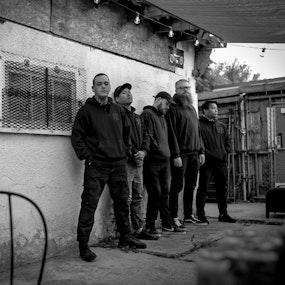
Cole Young
Setting the bar high with their debut record Condition (2017), Trench paved themselves a notably unique lane in both hardcore and nu-metal genres. Not stopping there and taking their sound to even further extremes, The Gift of Guilt (2019) was a testament to Trench's ability to reinvent themselves with each release. The 3-song behemoth experimented with synthesis, ambient post-metal soundscapes, and captured the pain of loss while embracing the hardest truths in life.
Throughout these two releases, Trench's unrelenting aggression and extensive touring brought them international recognition, and has allowed them to share the stage with bands such as Misery Signals, Integrity, Harm's Way, and Comeback Kid. Propelled by the leading single “Hell Bent Gate” which features Jesse Zaraska of Misery Signals on guest vocals, Trench landed on Revolver's "Top 5 Bands To Watch" list. Blending their previous styles with far more avant-garde song arrangements, Trench take us to a place where we are left contemplating our inner demons, trapped under the weight of our absence in the present moment.
As the pandemic brought most of the music industry to a screening halt, Trench had to walk away from a tour lined up with Misery Signals as opening support across the east coast of the US and Canada. Not letting a cancelled tour come between them and their will to succeed, Trench quickly adapted to their circumstances and wrote new material, which landed them a deal with New Damage Records (Dine Alone Records), serving as a testament to the undyin… Read More
Featured Episodes
Here are some great episodes to start with. Or, check out episodes by genre.
























